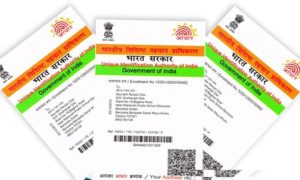In recent years, India has been witnessing a rapid transformation in its digital growth. From banking to shopping, everything is now online, giving people ease of transactions. However, this rapid growth has also led to a significant increase in online scams. Cybercriminals are becoming more sophisticated, trying new tricks to defraud individuals.
Read More: How to make UPI payment without Internet
The cases of these online scams are rampant, with individuals losing thousands to crores to these faceless fraudsters online. There are online work-from-home scams, review scams, YouTube scams, and so on. If you or someone you know suspects they have been targeted or even fallen victim to an online scam, here’s what you need to know to recover your money and prevent any further financial loss.
But before we delve deeper into what to do, let’s take a quick look at what is happening and how these scammers are tricking people. Here are a few common types of online scams currently on the rise in India:
Phishing Scam: In such scams, scammers impersonate legitimate organisations (banks, government agencies) through emails, SMS, or phone calls, contact people, and trick them into revealing personal information or clicking malicious links that steal financial data.
Fake Investment Schemes Scam: In this scam, fraudsters lure victims with promises of high returns on “unbelievable” investment opportunities. They generally connect with users online through popular channels like WhatsApp, Telegram, or others and offer ways to earn money through investments in cryptocurrency, work-from-home jobs, or get-rich-quick programs.
Social Media Scams: In such scams, scammers create fake profiles or hijack existing ones to exploit trust and spread misinformation. They may offer fake products, impersonate celebrities, or run online contests that turn out to be cons.
UPI Fraud: The rise of Unified Payments Interface (UPI) has also introduced a new field for fraud. Scammers are now tricking users into sharing UPI PINs or clicking links that initiate unauthorised transactions.
What to do if you fell for online scam?
If you fall victim to such a scam and lose money, here are the steps you should take to mitigate the damage and prevent further loss.
Stop Communication: First of all, cease all contact with the scammer. Don’t respond to their calls, emails, or messages.
Read More: Axis Miles To HSBC Premier, 5 Best Indian Credit Cards For International Travel
Notify Your Bank or Payment Service Provider: After ceasing communication, contact your bank or the payment service provider (such as Paytm, Google Pay, or PayPal) immediately. Explain the situation in detail and request them to block your account to prevent further unauthorised transactions. Most banks have a 24-hour customer service number specifically for reporting fraud. Early reporting increases the likelihood of recovering your money.
Change Your Passwords and Secure Your Accounts: Meanwhile, change the passwords for all your online accounts, especially those related to banking and financial services. Use strong, unique passwords that combine letters, numbers, and special characters. Enable two-factor authentication (2FA) where possible to add an extra layer of security. Also, if you use online banking, block your debit or credit cards.
Report online scam to cyber cell
After the first few steps, the most important step is filing a complaint with the cyber cell. Report the incident to your local Cyber Crime Cell. The Indian government has set up dedicated cyber crime cells in major cities to handle such complaints. You can also file a complaint online through the National Cyber Crime Reporting Portal (cybercrime.gov.in). Provide all relevant details, including transaction IDs, emails, and any communication with the scammer.
Note that the earlier you inform the authorities, the better the chances of recovering your money.
How to Protect Yourself from Online Scams
Meanwhile, here are some preventive measures to help you stay away from scams:
Be Wary of Unsolicited Offers: If an offer seems too good to be true, it probably is. Do not get lured by unrealistic promises of high returns or easy money.
Verify Information: Always double-check the sender’s email address, website legitimacy, and phone numbers before clicking on links or sharing personal information.
Beware of Emotional Triggers: Scammers often use fear, like threats of legal action, or excitement to manipulate emotions. Stay calm and exercise caution.
Read More: Mumbai-Pune Trains Cancelled From May 28 To June 2; Check Full List, Reason Here
Strong Passwords & 2FA: Use strong, unique passwords for all your online accounts and enable two-factor authentication wherever available.
Stay Informed: Educate yourself about common online scams and keep up-to-date with the latest tactics used by fraudsters.





































